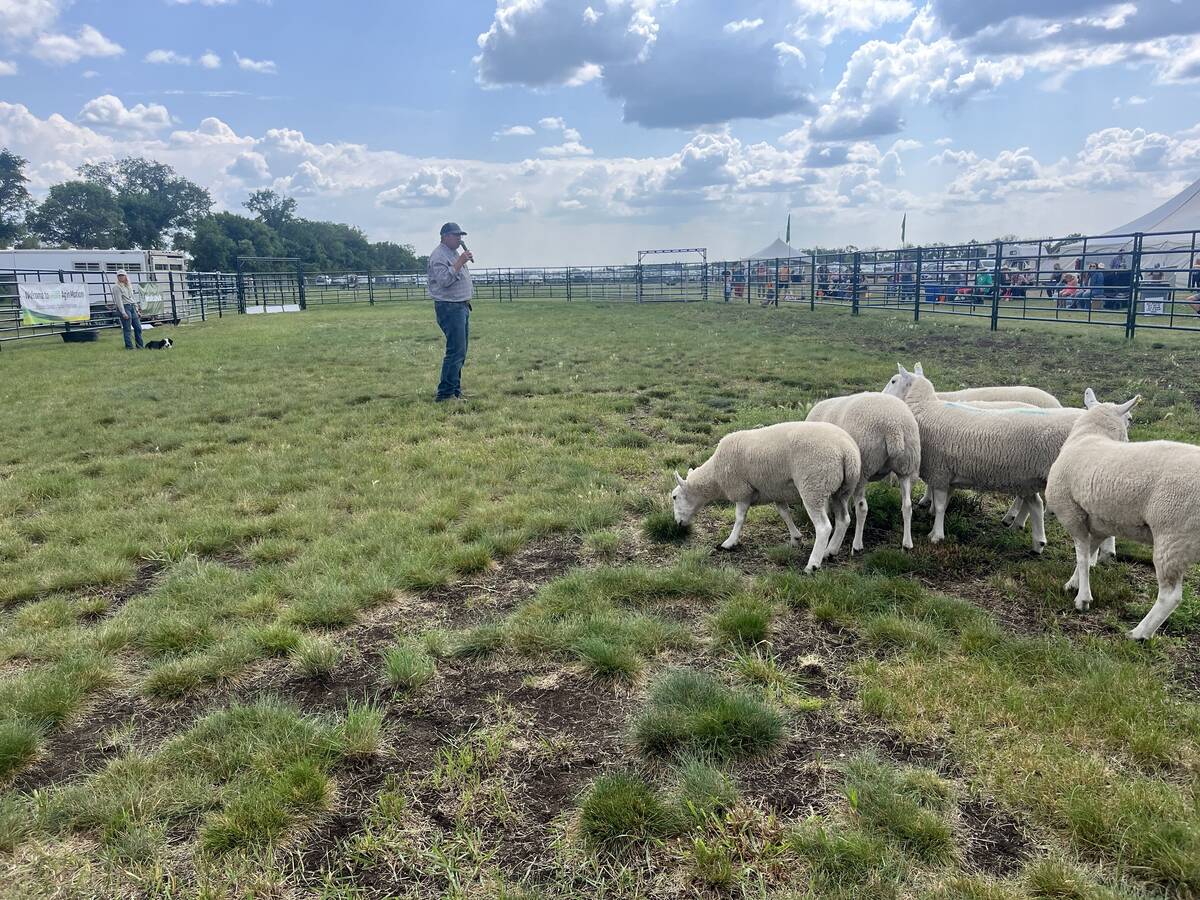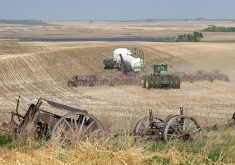Prolonged bouts of cold weather last winter hampered bull fertility on the Prairies, but the results were not as severe as originally feared.
Earlier this year, there were reports of unusually high cull rates among yearling bulls undergoing fertility testing. In Manitoba, about a third of those bulls failed during their first round of testing at bull test stations.
Prolonged cold spells from mid-January to mid-March were identified as the most likely cause of the problem. Cold weather can cause frostbite on bulls’ scrotums, resulting in damaged sperm.
Read Also

Stock dogs show off herding skills at Ag in Motion
Stock dogs draw a crowd at Ag in Motion. Border collies and other herding breeds are well known for the work they do on the farm.
“There’s no question there was a higher failure rate this year than most,” said Allan Preston, Manitoba Agriculture’s director of veterinary field services, describing the cull rate among yearling bulls.
However, he said when the yearling bulls that failed the first round of testing went for retests, which typically takes place before they reach 16 months of age, about half of them passed.
Andres Arteaga, a clinical associate at the Western College of Veterinary Medicine in Saskatoon, said cull rates among bulls in Saskatchewan were also higher than usual this year. Cold weather was considered the most likely culprit.
Arteaga did not have an estimate of how many yearling bulls failed on the first test, or what percentage improved enough to pass a retest.
Higher than normal cull rates in Manitoba and Saskatchewan meant lost revenue for bull breeders. Bulls that do not pass fertility testing, done as part of breeding soundness evaluations, most often end up being sold for slaughter.
“To hang onto those bulls hoping for recovery (in fertility) is usually a money losing proposition,” Preston said.
The effects of cold weather on bull fertility did not appear to translate into a lot of open cattle on pasture this summer. Preston said breeding evaluations proved their value by screening out bulls that might otherwise have performed poorly when released onto pasture to breed.
“I think most producers who believe in bull evaluations made damn sure they had a good bull to turn out on pasture.”
In Alberta, there was not as much talk about the toll cold weather took on bull fertility. While there were “a few guys complaining that their bulls didn’t test up,” cold was only one factor, said Christoph Weder, an Alberta Agriculture beef specialist. He said another factor can be bulls that are overfed, causing them to have a reduced sex drive.
Straw packs and good shelter are two ways that producers can lessen the risk of reduced fertility in bulls as a result of extreme winter weather, Preston said.
















